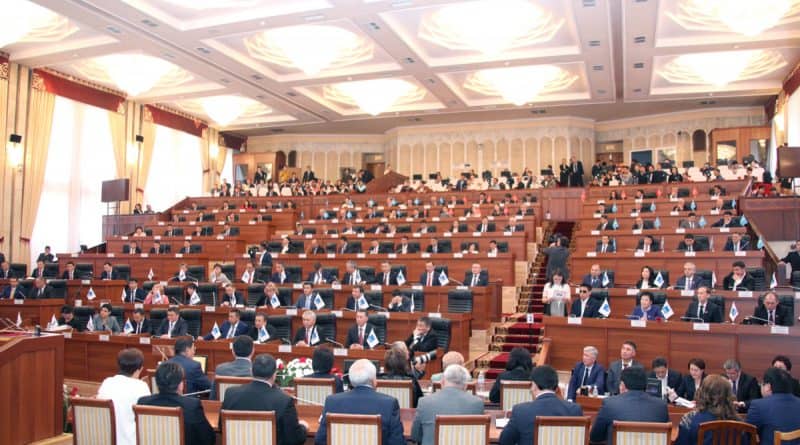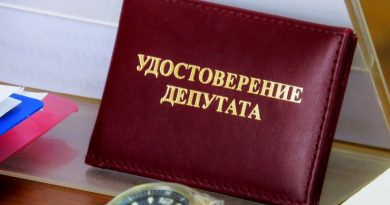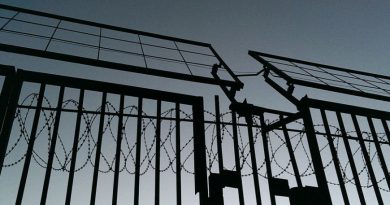Kyrgyzstan: MPs want to tighten reporting for NGOs again
On June 17, deputies of the Parliament of Kyrgyzstan approved the draft law on non-profit organizations in the third reading. Only 10 out of 93 MPs, registered at the meeting, voted against this initiative.
According to the document, a non-profit organization operating at the expense of funds provided on a gratuitous basis must annually provide information on the sources of formation and directions of spending financial resources.
The draft law provides for a rule according to which the size and structure of income of a non-profit organization, as well as its property, cannot be the subject of commercial secrets.
According to the initiators of the bill, such a measure is a widespread international practice aimed at increasing the transparency of the activities of NPOs, and, accordingly, strengthening the index of public confidence in non-profit organizations.
“The adoption of the bill will strengthen the index of public confidence in non-profit organizations and increase the transparency of activities. The advantages of openness of information are obvious. If non-profit organizations, as well as state bodies, become transparent, this, in turn, will facilitate cooperation between the state and the civil sector,” said one of the drafters of the document, MP Baktybek Raiymkulov.
This initiative drew criticism among the public. Rallies were held in front of the Parliament’s building demanding not to pass the bill, and non-governmental organizations even sued the speaker and deputies for violating the rules when passing the bill. As a result, the parliamentarians passed the bill despite criticism.
After the vote, representatives of the republic’s NGOs published an appeal to President Sadyr Japarov. Activists ask the head of state to veto the law passed by the deputies.
The appeal says that it contains discriminatory norms that contradict the basic democratic principles of regulating the activities of non-profit organizations, and if adopted, it will significantly restrict their activities.
They noted that the current legislation of Kyrgyzstan already provides for the provision of information on NPOs activities to the Tax Service, the Social Fund and Statistics Fund, including information on the financial situation, the availability of property, expenses, the number and composition of employees, their remuneration, and so on. That is, state bodies already have ample opportunities to exercise control over the compliance of NPOs with the requirements of laws and other regulatory legal acts.
They clarify that the provisions of the draft law are discriminatory for NPOs in comparison with commercial organizations, which are not subject to the new reporting requirements. In accordance with international practice, the legal regulation of the activities of NPOs, that don’t have the special status of a “charitable organization”, which gives them the right to certain benefits, should be similar to the legal regulation of the activities of commercial organizations.
“Kyrgyzstan consistently maintains the status of the most democratic country in Central Asia. The adoption of laws, that create additional burdensome norms for NPOs, undermines the existing status and image of the country in the eyes of the world community. In our opinion, the initiators of the draft law don’t fully understand the importance and scope of the activities of NGOs in Kyrgyzstan, which make a significant contribution to the economic and social development of the country. We perform those functions that the state and market institutions are not able to adequately implement, thereby reducing social tension in society,” summed up the compilers of the appeal.
Director of the human rights movement “One World (Bir Duino)” Tolekan Ismailova commented to ACCA on the adoption of the scandalous amendments. She stated that it’s the Parliament that is responsible for what is happening in the country today.
“Our parliamentarians allowed the events of October 2020, and now we see how radically our country is changing. We are steadily moving from a parliamentary form of government to a presidential one. We are losing everything that we have achieved during the years of Kyrgyzstan’s independence,” she said.
Ismailova explained that there was a really strong civil community in the country, but today the situation in this regard is worsening.
“Year after year, Kyrgyzstan has been losing its positions in all development indices. What do we have today? Corruption and poverty reign in the country, and against this background, the authorities are trying to finally deprive the people of their voice, deprive them of their rights, as well as the ability to protect them,” the human rights activist believes.
She lamented that decision-makers in the Kyrgyz Republic don’t study the analytics prepared by NGOs, ignore the recommendations of human rights organizations.
“The deputies consistently restrict freedom. They want to leave voiceless those whom we help – national minorities, women, children, prisoners. Civil society needs to declare that parliamentarians have no right to encroach on civil liberties, they should not pass anti-constitutional bills,” concluded Tolekan Ismailova.
It’s worth noting that last year the Parliament of the Kyrgyz Republic has already tried to adopt such amendments. However, the deputies didn’t have time to vote on them in the third reading before leaving for the holidays.




